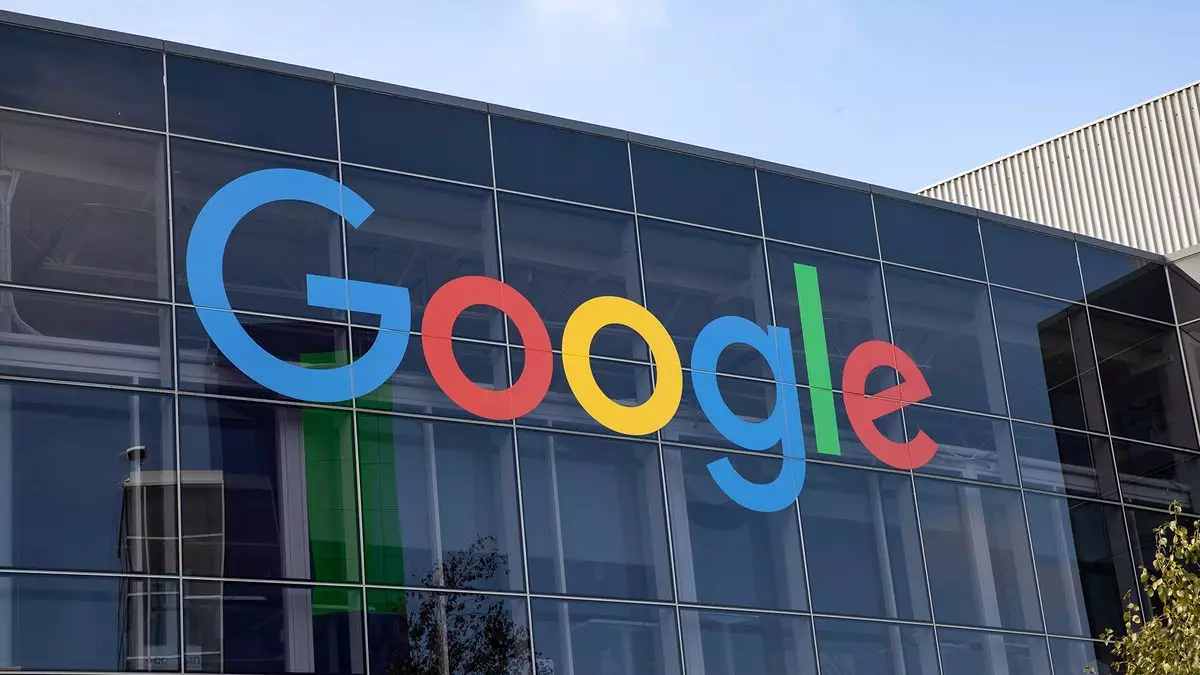In the ever-changing landscape of big tech, legal confrontations have become a familiar narrative. Silicon Valley, often characterized by its staggering valuations and financial maneuverability, witnessed another chapter in this drama with Google (owned by Alphabet) successfully overturning a hefty €1.49 billion fine imposed by the European Court. This decision not only showcases legal resilience but also raises questions about the broader implications of such antitrust rulings in a sector that increasingly demands accountability and fairness.
The original penalty, enforced in 2019 by the European Commission (EC), stemmed from accusations that Google had manipulated its dominant market position to stifle competition. Specifically, the EC charged that the tech giant imposed exclusive terms on publishers, hindering rival advertisers from effectively penetrating lucrative markets. This resulted in a favorable advertising ecosystem for Google, characterized by restricted competition. The fine was intended not merely as a punitive measure but as a deterrent against monopolistic practices that inhibit a healthy marketplace.
The General Court of Europe, in its recent decision to annul the fine, acknowledged the EC’s assertions but contended that insufficient evidence existed to definitively demonstrate that Google’s strategies had stifled innovation or harmed consumers. This reasoning reveals a fundamental question about antitrust law enforcement: what constitutes unequivocal harm in the complex digital landscape? As the court noted, demonstrating a negative impact on innovation and consumer choice is a challenging task, especially in an arena characterized by rapid technological advancements and shifting market dynamics.
This debate over the burden of proof not only complicates cases against technological giants but also reflects a broader principle regarding the enforcement of antitrust laws across Europe and beyond. In a sector where innovation is king, courts face an uphill battle in delineating between legitimate competitive tactics and anti-competitive practices. The potential for subjective interpretations of market conduct further complicates these legal proceedings, which could lead to diverse outcomes as various jurisdictions grapple with these issues.
Despite the recent judicial victory, Google continues to navigate a treacherous legal landscape. Just weeks prior, a separate €2.4 billion fine related to similar anti-competitive allegations remained upheld, and ongoing legal battles in the United States further threaten the company’s operational framework. A US judge recently ruled that Google violated antitrust laws, asserting that the company engaged in systematic behaviors that aimed to monopolize the digital advertising ecosystem. Furthermore, the Department of Justice’s ongoing complaints emphasize a belief that Google’s dominance restricts market access for competitors while hindering fair competition.
These intricate legal challenges highlight a critical juncture for Google: as one of the world’s foremost technology firms, the firm stands at the crossroads of innovation and regulation. While Google’s vast resources afford it a certain latitude to weather these fines, internal and external pressures for reform and transparency are intensifying. How the company navigates this ecosystem of scrutiny will likely shape not only its corporate strategies but also the future landscape of digital commerce.
Beyond the Dollars: The Philosophical Implications of Corporate Accountability
The conversation surrounding antitrust enforcement and corporate accountability raises a pertinent philosophical inquiry: how should we define the responsibilities of tech giants in today’s economy? Observers of the tech landscape often point to the vast profits accrued by firms like Google, which, in many ways, seems indifferent to the economic penalties imposed. Thus, a significant question arises: are financial fines sufficient to deter large corporations from practices that marginalize competition, or do they merely serve as a cost of doing business?
The narrative is further complicated by the contrasting perspectives between fostering innovation and ensuring market fairness. On one hand, the very strategies that fuel Google’s success may be perceived as an existential threat to market diversity. On the other, the company argues that its advancements ultimately benefit consumers and drive industry evolution. This ideological clash underscores the complexities inherent in regulating a sector that defies traditional economic principles.
The recent court ruling represents not merely a win for Google but a pivotal moment in the ongoing discourse of digital governance and corporate accountability. As regulatory bodies around the world grapple with enforcing fair competition, the outcome of these cases will define not just the future of Google but the landscape of technology itself.


Leave a Reply